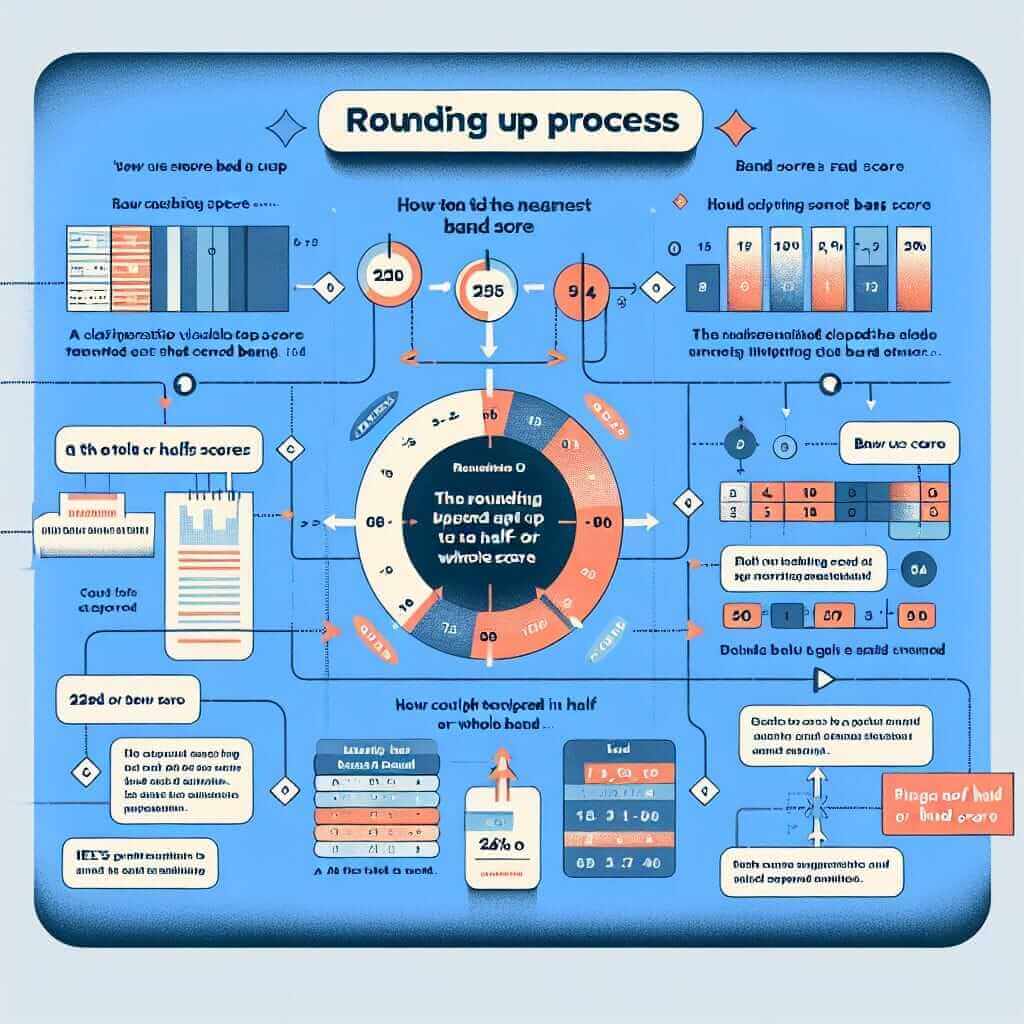The Importance of Understanding IELTS Band Scores
As an experienced IELTS instructor with over two decades of experience, I understand the significance of a high IELTS score for your academic and professional aspirations. Many students often find themselves curious about how their IELTS scores are calculated, particularly the aspect of rounding. This article will delve into the intricacies of how IELTS scores are rounded, providing you with a clear understanding of the process.
Decoding IELTS Score Rounding
The IELTS exam assesses your English language proficiency in four sections: Listening, Reading, Writing, and Speaking. Each section receives a band score ranging from 0 to 9, with 0 indicating a non-attempt and 9 representing expert user proficiency. Your overall band score is the average of these four individual scores.
Here’s where rounding comes into play:
-
Rounding to the nearest half band: If the average of your four section scores ends in .25, it is rounded up to the nearest half band. For example, an average score of 6.25 would be rounded up to 6.5.
-
Rounding to the nearest whole band: If the average of your four section scores ends in .75, it is rounded up to the nearest whole band. For instance, an average score of 7.75 would be rounded up to 8.

Illustrative Examples from Real IELTS Scores
Let’s consider a few examples to solidify your understanding:
Scenario 1:
- Listening: 7.0
- Reading: 6.5
- Writing: 6.0
- Speaking: 7.5
Total: 27 / 4 = 6.75. This score is rounded up to 7.0.
Scenario 2:
- Listening: 8.0
- Reading: 7.0
- Writing: 7.5
- Speaking: 8.5
Total: 31 / 4 = 7.75. This score is rounded up to 8.0
Tips to Maximize Your IELTS Score
While understanding the rounding system is helpful, your primary focus should be on achieving the highest possible score in each section. Here are some valuable tips to help you excel:
- Consistent Practice: Engage in regular practice tests under timed conditions to enhance your speed and accuracy.
- Feedback is Crucial: Seek feedback from experienced IELTS instructors or tutors to identify areas for improvement.
- Master Test-Taking Strategies: Familiarize yourself with the test format, question types, and time management strategies to optimize your performance.
- Enhance your Vocabulary and Grammar: A strong command of English vocabulary and grammar is fundamental for all sections of the IELTS.
Conclusion
Remember, achieving your desired IELTS score requires dedicated effort and strategic preparation. By focusing on consistent practice, targeted improvement, and effective test-taking techniques, you can attain your desired score. Good luck with your IELTS journey!